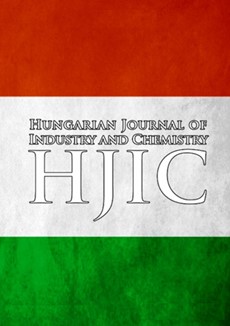Enhanced Use of Renewable Resources: Transesterification of Glycerol,the Byproduct of Biodiesel Production
DOI:
https://doi.org/10.1515/407Abstract
Methyl esters of fatty acids (also known as biodiesel) made from transesterification of vegetable oils and animal fats with methanol, have shown a lot of promise as alternative diesel fuels. Glycerol is the inevitable byproduct of transesterification process for which new uses need to be found. While there are existing markets for glycerol, a significant increase in availability of glycerol, resulting from the expanded use of vegetable oils and animal fats, would destabilize glycerol market. In this study synthesis of glycerol carbonate from glycerol and dimethyl carbonate was investigated. Glycerol carbonate is a key multifunctional compound employed as solvent, additive, monomer and chemical intermediate. Resulting glycerol carbonate was obtained in almost quantitative yield. According to measured data a well-elaborated mathematical model of the reactor was used for experiments can be adequate to assign parameters of kinetic equations of the assumed reaction mechanism. Component mass balances were built into the reactor model and order of reactions was fixed.Downloads
Published
2011-09-01
Issue
Section
Articles
How to Cite
Enhanced Use of Renewable Resources: Transesterification of Glycerol,the Byproduct of Biodiesel Production. (2011). Hungarian Journal of Industry and Chemistry, 39(2), 183-187. https://doi.org/10.1515/407




